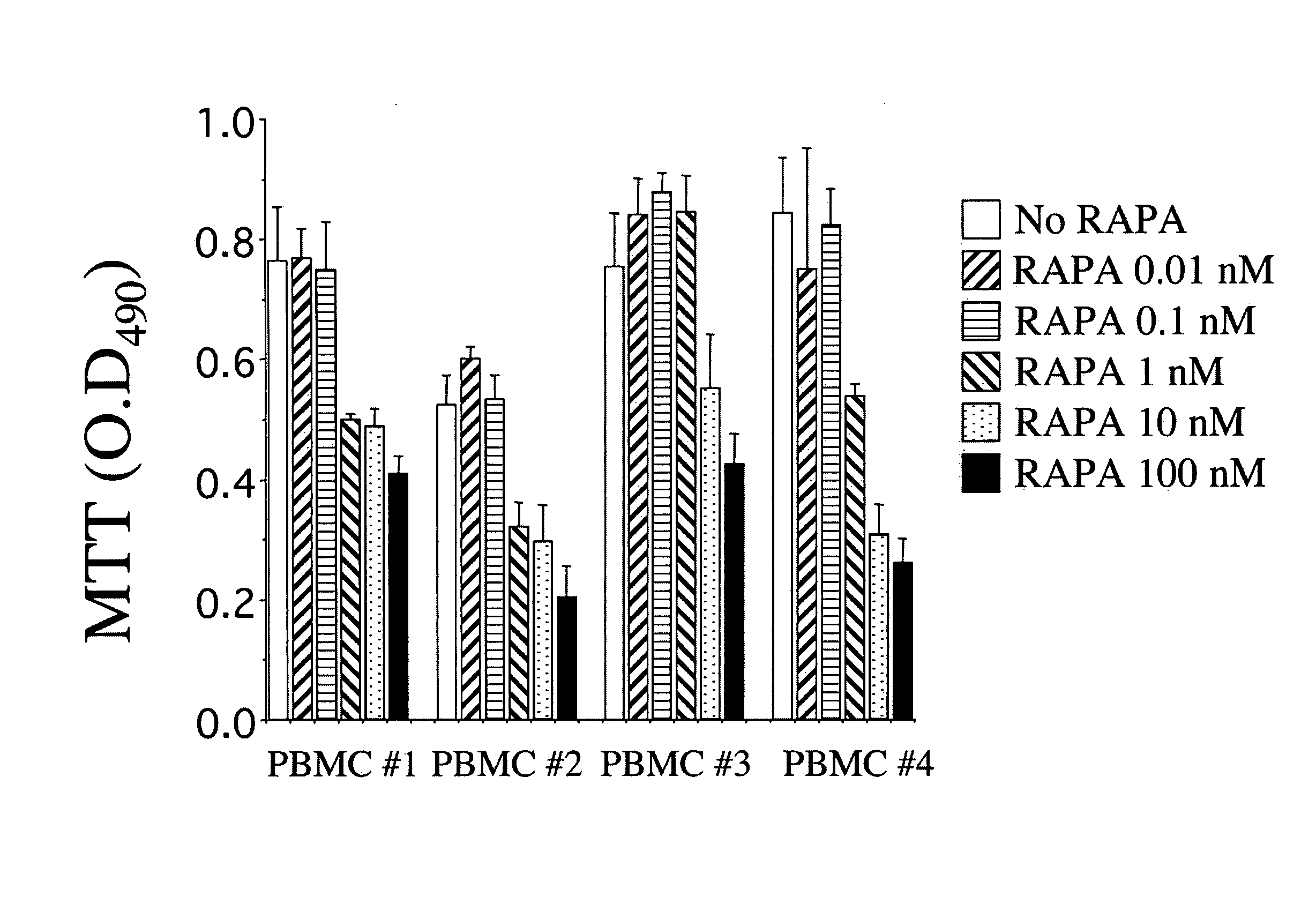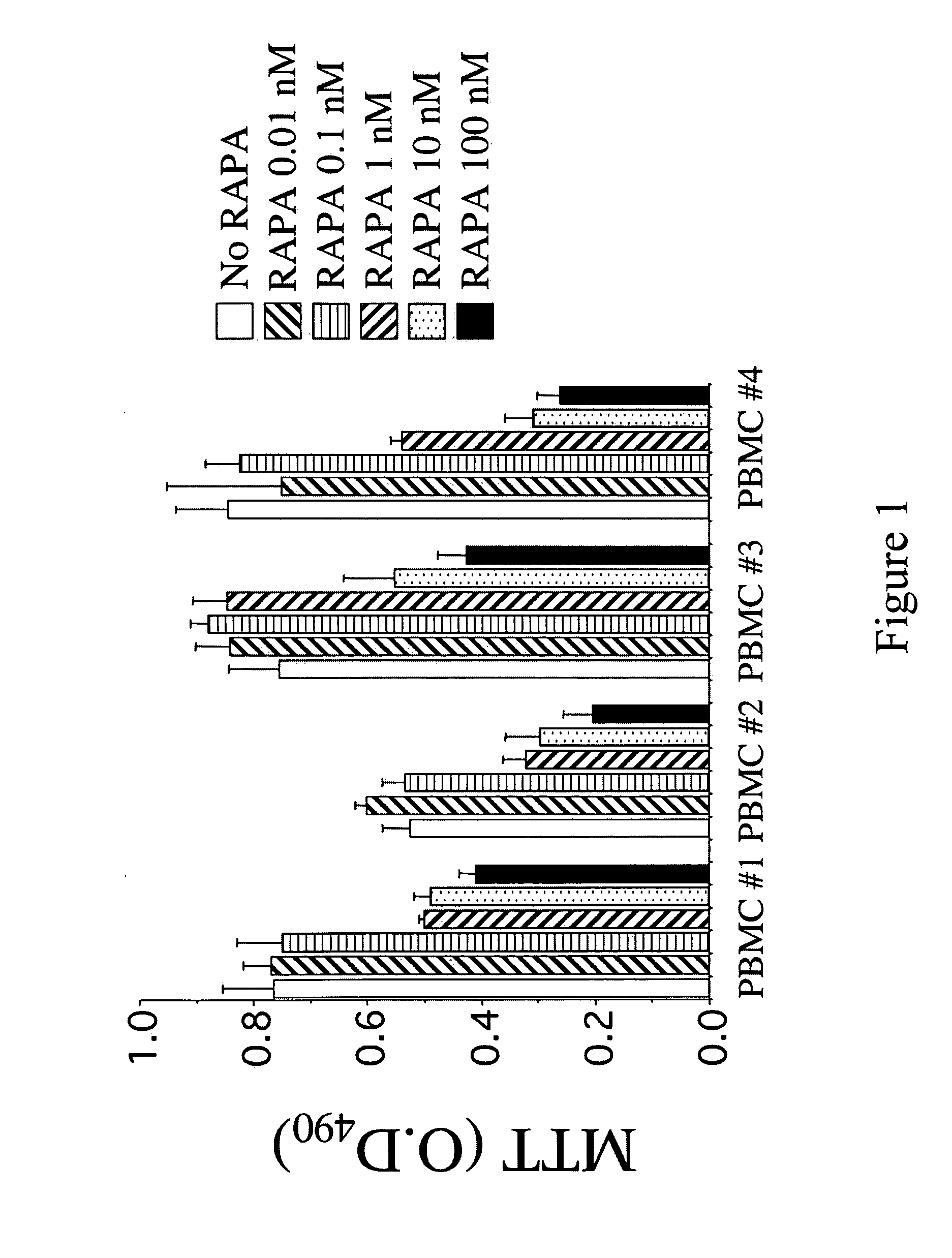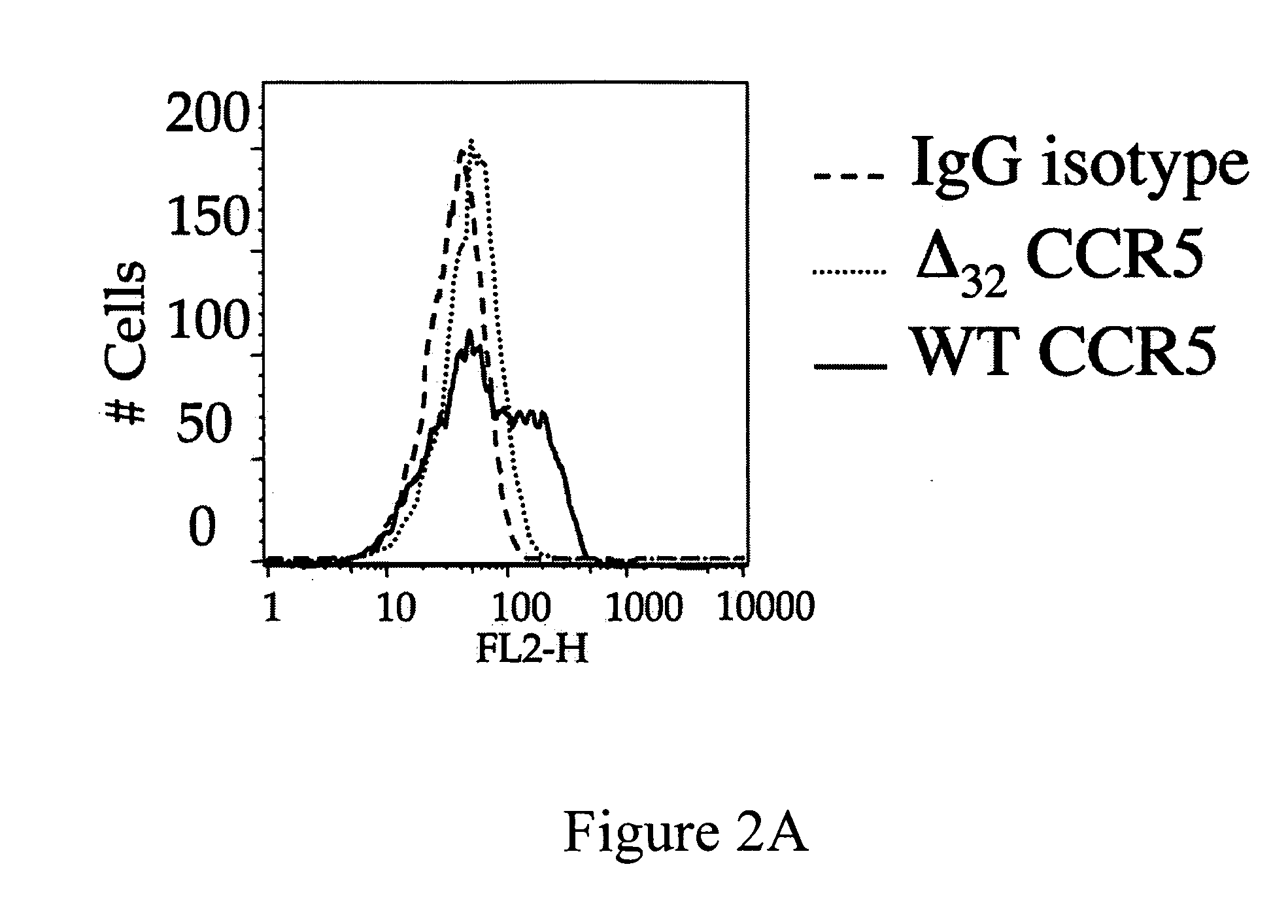Compositions for down-regulation of CCR5 expression and methods of use thereof
a technology of ccr5 and composition, applied in the field of downregulation of ccr5 expression, can solve the problems of immune incompetence, opportunistic infections, neurodegeneration, and ultimately death, and achieve the effect of reducing receptor sites
- Summary
- Abstract
- Description
- Claims
- Application Information
AI Technical Summary
Benefits of technology
Problems solved by technology
Method used
Image
Examples
example 1
[0115] Effect of RAPA on PBMC Proliferation and Viability: Purified PBMCs from normal donors were cultured in the presence of IL-2 and RAPA (10-fold serial dilutions, from 104 to 0.01 nM). On day 7, the extent of cell proliferation was measured by the MTT assay. Representative results obtained on one of two independent experiments, each using cells from four donors, are shown. For each donor, data values are mean±SD of three independent wells. Reduced proliferation, measured by the MTT assay on day 7, was detected at drug concentrations ≧1 nM as shown in FIG. 1. Drug toxicity was observed at drug concentrations above 103 nM (data not shown).
example 2
[0116] RAPA Down-Regulates CCR5 Expression on T Lymphocytes and Monocytes: The specificity of the CCR5 was determined using surface-staining protocol by measuring CCR5 expression on lymphocytes from a normal donor and from a donor previously characterized as homozygous for the Δ32 mutation in the CCR5 gene. Before staining, PBMCs from both donors were cultured for 7 days in the presence of IL-2 because these culture conditions up-regulate CCR5 surface expression (Bleul, 1997). Results, depicting CCR5 expression on gated CD4 T cells, are shown in FIG. 2A. The results show specific detection of CCR5 surface expression on CD4+ T cells from a normal donor, but not on CD4+ T cells from an individual homozygous for the Δ32 mutation in the CCR5 gene. The results indicate that the methodology used in the present example can specifically detect CCR5 surface expression.
[0117] To determine the effect of RAPA on CCR5 surface expression on lymphocytes from normal donors, fresh donor PBMCs were ...
example 3
[0120] RAPA Increases Extracellular Levels of MIP-1α and MIP-1β in PBMC Cultures: Because lymphocytes and monocytes cultured in the presence of RAPA presented reduced CCR5 RNA and protein levels, the levels of the CCR5 ligands MIP-1α, MIP-1β, and RANTES were measured in supernatants of RAPA-treated PBMC cultures. PBMCs from four donors were cultured in the presence of IL-2 and RAPA for 10 days. On day 10, percentage of cells expressing CCR5 and supernatant chemokine content were determined for each donor. As in previous experiments, RAPA treatment resulted in reduced levels of CCR5 protein expression. When chemokine content in culture supernatants was measured, it was found that MIP-1α and MIP-1β levels were higher in the presence of RAPA than in its absence in all four donors. Among the different donors, RAPA-treated cultures contained 6-39-fold higher levels of MIP-1α than untreated cultures. Similarly, MIP-1β levels were increased 17-47-fold in the presence of RAPA as compared wi...
PUM
| Property | Measurement | Unit |
|---|---|---|
| Magnetic field | aaaaa | aaaaa |
| Electric charge | aaaaa | aaaaa |
| Dimensionless property | aaaaa | aaaaa |
Abstract
Description
Claims
Application Information
 Login to View More
Login to View More - R&D
- Intellectual Property
- Life Sciences
- Materials
- Tech Scout
- Unparalleled Data Quality
- Higher Quality Content
- 60% Fewer Hallucinations
Browse by: Latest US Patents, China's latest patents, Technical Efficacy Thesaurus, Application Domain, Technology Topic, Popular Technical Reports.
© 2025 PatSnap. All rights reserved.Legal|Privacy policy|Modern Slavery Act Transparency Statement|Sitemap|About US| Contact US: help@patsnap.com



